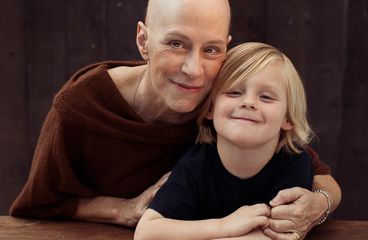Managing Nausea From Cancer Treatment: Care Instructions
Overview

Cancer and the treatments for it can sometimes make you sick to your stomach (nauseated) or make you vomit.
If these side effects aren't managed, you can lose too much fluid (dehydration). And nausea and vomiting can
make it hard to eat enough to keep your weight up. But you can work with your doctor to manage these problems.
Your doctor may prescribe medicine to keep you from feeling sick to your stomach (anti-nausea medicine). You
also can do a few things at home to help manage your nausea and feel better. This can help you stay hydrated,
prevent weight loss, and keep up your strength.
Follow-up care is a key part of your treatment and safety. Be sure to make and go to all
appointments, and call your doctor if you are having problems. It's also a good idea to know your test results
and keep a list of the medicines you take.
How can you care for yourself at home?
Medicines
-
Talk to your care team if you have nausea or are vomiting. These side effects from cancer treatment can
almost always be controlled with medicine. If you are taking medicine and are still vomiting, you may need
to try a different medicine.
-
Take your medicines exactly as prescribed. Call your doctor if you think you are having a problem with
your medicine.
-
Don't smoke. Smoking and being around smoke can make nausea worse. If you need help quitting, talk to your
doctor about stop-smoking programs and medicines. These can increase your chances of quitting for good.
Eating and drinking
-
To prevent dehydration, drink plenty of fluids. Choose water, electrolyte replacement drinks (such as
Pedialyte and Rehydralyte), and other clear liquids. You may also try fruit juices, flavored ice pops, and
broths. If you have kidney, heart, or liver disease and have to limit fluids, talk with your doctor before
you increase the amount of fluids you drink.
-
Eat small, frequent meals or snacks. When you don't feel like eating a meal, try apple or grape juice,
weak teas, clear broths, dry toast, cooked cereal, or gelatin dessert. Avoid citrus juices and lemonade.
-
Make the most of the days when your appetite is good. Ask friends and family to help you shop and cook.
Have meals delivered to your home.
-
Try frequent, small portions of meal supplements, such as Ensure, to get extra calories and protein. Try
different kinds to find out which ones you like. Your doctor, nurse, or dietitian can help. They may have
samples for you to try.
-
Don't force yourself to eat when you feel sick. Limit sounds, sights, and smells that make you feel sick.
-
Try eating food cool, cold, or at room temperature.
-
Have peppermint candy or peppermint gum handy. It can help settle your stomach.
-
Eat a light meal or snack before your chemotherapy so that you have something in your stomach. If your
chemo takes several hours, bring a light meal or snacks.
More ways to care for yourself
When should you call for help?
 Call 911
anytime you think you may need emergency care. For example, call if:
Call 911
anytime you think you may need emergency care. For example, call if:
Call your doctor now or seek immediate medical care if:
Watch closely for changes in your health, and be sure to contact your doctor if:
Current as of: October 25, 2023
Content Version: 14.0
Care instructions adapted under license by your
healthcare professional. If you have questions about a medical condition or this instruction, always ask
your healthcare professional. Healthwise, Incorporated disclaims any warranty or liability for your use of
this information.